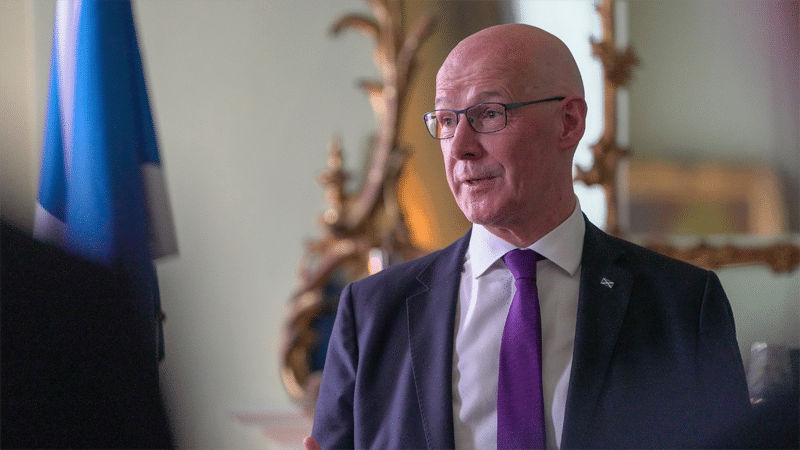MSP Liam McArthur’s assisted suicide Bill discriminates against vulnerable people with disabilities, Scotland’s First Minister has said.
During First Minister’s Questions, John Swinney agreed with MSP Pam Duncan-Glancy that the Bill presents an “unsurmountable risk to disabled peoples’ equality and human rights”.
Under the Assisted Dying for Terminally Ill Adults (Scotland) Bill, those who have been resident in Scotland for at least twelve months could get help from a medic to kill themselves if they are deemed to be terminally ill.
Legal opinion
Duncan-Glancy said: “Legal advice published this week concluded that the Assisted Dying for Terminally Ill Adults (Scotland) Bill would not be compatible with the European Convention on Human Rights.”
The Labour MSP was citing Tom Cross KC’s legal opinion on the Bill for The Christian Institute, in which he warns it would unfairly discriminate against people with conditions such as autism, bipolar disorder and depression.
Reading from the barrister’s critique of the Bill, Duncan-Glancy said: “without justification, it contains no adequate safeguard protecting the position of those with disabilities where suicidal ideation is more likely, and who are, because of that feature of their disability, more likely to express a wish to die”.
She then asked the First Minister whether he agreed with her that this presents “an unsurmountable risk to disabled people’s equality and human rights in Scotland if the Assisted Dying Bill were to pass”.
Agreement
The First Minister explained that as the Scottish Government had taken “a neutral stance” on Lib Dem McArthur’s Member’s Bill, he could “only express a personal opinion”.
However, he continued: “As Miss Duncan-Glancy will know, I do not support the Assisted Dying Bill, and I don’t support it for many of the reasons that she has just put on the record”.
Swinney expressed “enormous personal sympathy” with the point she raised. He concluded: “These are issues that Parliament will have to wrestle with as it considers the legislation. But, I can only express to her my agreement with the point that she’s made.”
‘Dangerous’
Mr Cross, who is on the panel of counsel for the Equality and Human Rights Commission, writing with barrister Ruth Kennedy, said in the legal opinion: “By virtue of Article 14 of the ECHR, disabled persons enjoy special protection from discrimination, including in the enjoyment of the right to life”.
However, they noted that “without justification, the legislation fails to provide any adequate safeguard to address that greater vulnerability”, and so leaves the Bill open to a legal challenge if it became law.
They warned: “The time for ensuring that the Bill protects the most vulnerable is during its passage through Parliament. In our view, it is inadequate, on analysis, to adopt a ‘wait and see’ approach, by which the State may come to learn in due course whether rights of its citizens have been violated. By that time the Bill will be law, and the horse will have bolted.”
Commenting on the opinion, The Christian Institute’s Deputy Director Simon Calvert said the document should “set alarm bells ringing” for MSPs and urged them to give up “on this dangerous and discriminatory Bill”.

Daughter devastated by mother’s secret assisted suicide
Canadian MP campaigns for hope not death for those with suicidal thoughts
Cancer patient warns assisted suicide ‘writes off’ the terminally ill

